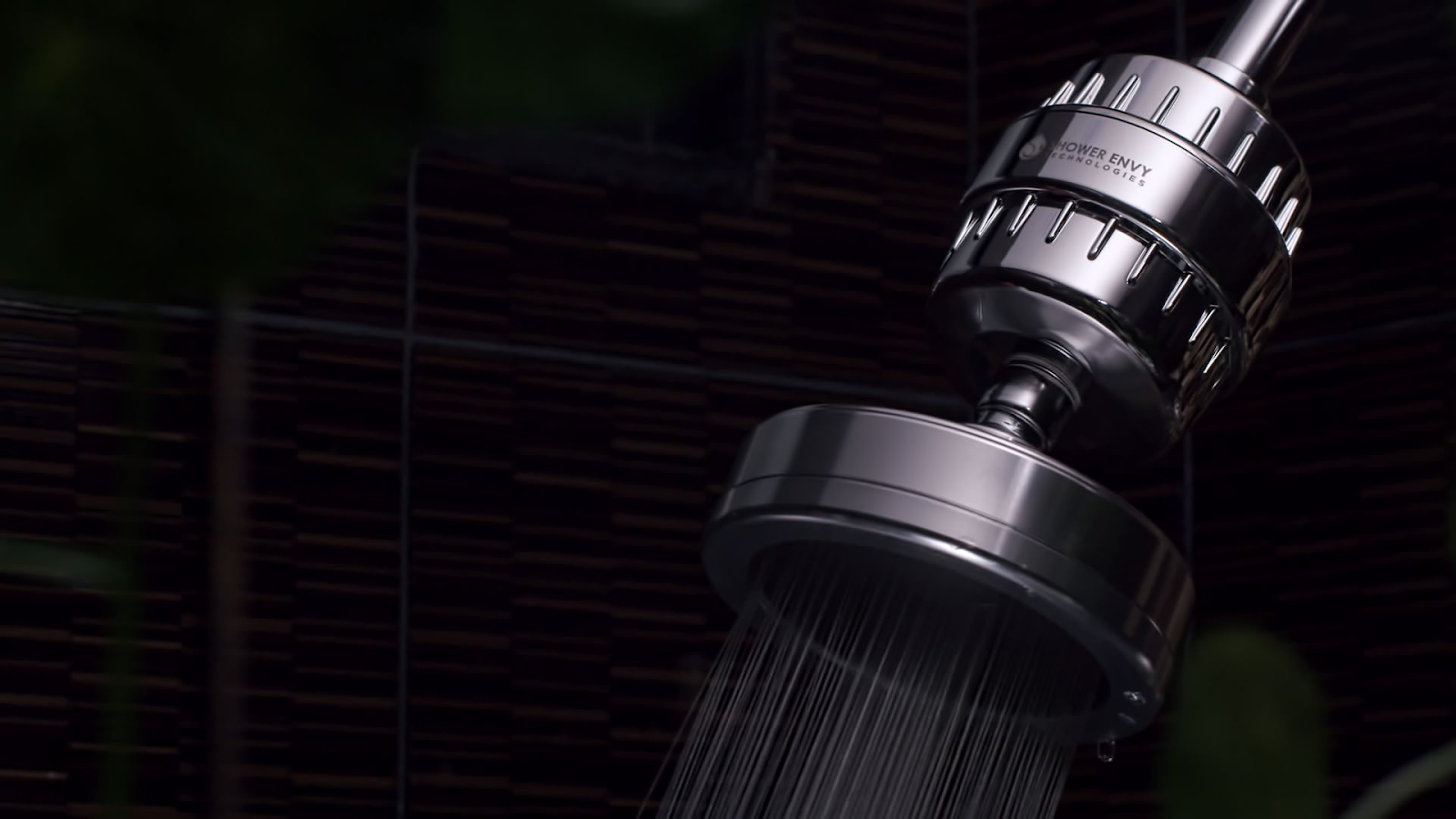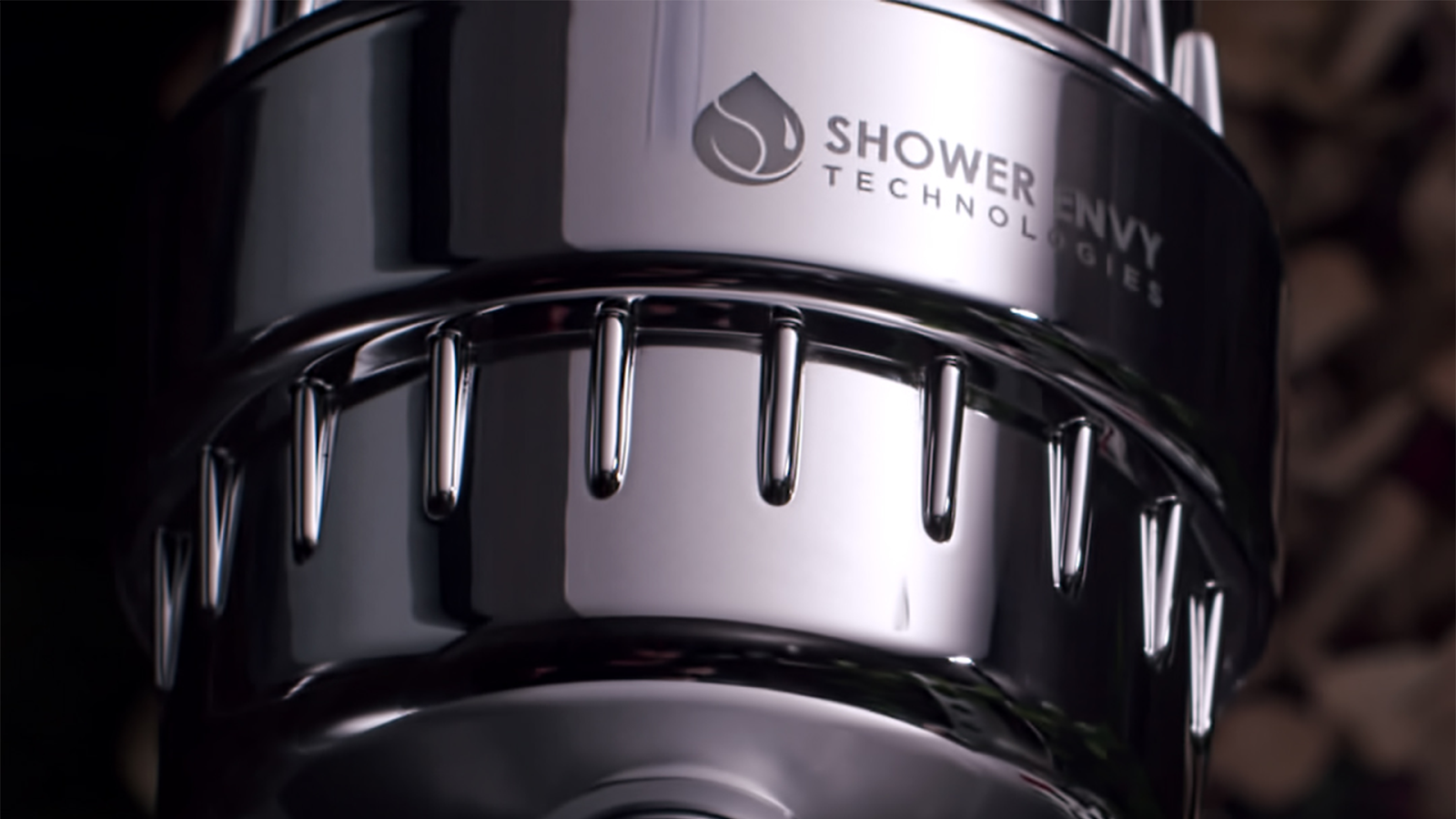
600k+ Followers

600k+ Likes

160k+ Followers
FEATURED IN





Think your tap water is harmless just because it’s clear? Think again. Invisible to the eye, hard water can quietly wreak havoc on your skin, hair, appliances, and even your wallet. That’s why it’s essential to test water hardness at home — not only to uncover what's lurking in your pipes, but also to protect your health and home from long-term damage.
With simple tools and a little knowledge, you can easily test your water, interpret the results and take steps to improve your quality of life. Let’s explore how to get started.
What is Water Hardness?
Water hardness refers to the concentration of dissolved calcium and magnesium in your water. When water flows through limestone or chalk-rich areas, it picks up these minerals. The higher their presence, the harder your water.
While hard water isn’t a health hazard per se, it impacts everything from soap lather to the lifespan of your appliances — and most importantly, the condition of your skin and hair.
Why Knowing Your Water Hardness Matters for Your Health and Home
Understanding your water quality matters for renters, skincare enthusiasts, parents, plumbers, homeowners and anyone concerned about daily exposure to chemical or mineral buildup.
Testing your water empowers you to make better choices!
Some of the biggest effects of hard water are subtle but cumulative:
Skin may feel tight or dry after showering
Hair becomes dull and brittle over time
Soap and shampoo don’t lather or rinse off easily
White spots form on dishes and faucets
Washing machines and heaters break down prematurely
That’s why learning how to test hard water at home is the first step toward protecting both your health and your home infrastructure
Signs You Might Have Hard Water
Common Household Indicators
Before running a formal home water hardness test, look out for these signs:
Chalky residue on glassware or shower doors
Low soap lather and shampoo buildup
Clogged showerheads and faucets
Itchy skin or increased eczema symptoms after bathing
Clothing that feels stiff or rough after washing
Effects on Skin, Hair, and Plumbing
-
Effects of hard water on skin include clogged pores, irritation, and dryness, especially in people with sensitive skin or eczema. Hard water makes it harder for soap to wash off completely, leaving behind a film that can inflame the skin.
-
Hard water and hair damage often manifest as frizz, dryness and even breakage. Mineral deposits can build up on the scalp and shaft, reducing shine and elasticity.
Plumbing issues are another red flag. Mineral buildup leads to lower water pressure, inefficient heating, and even pipe corrosion over time.
Simple Methods to Test Water Hardness at Home
Using Water Hardness Test Kits
One of the most accurate and user-friendly methods is using a water hardness test kit. These kits are available online or at hardware stores and typically include test strips or drops that change color depending on the mineral content of your water.
How to use:
1. Fill a clean glass with cold tap water.
2. Dip the test strip into the water and hold for a few seconds.
3. Compare the color of the strip to the chart provided.
This method offers quick, accurate results and helps you determine whether you need a solution like a shower water filtration system or full-home softener.

Soap Test Method
A classic DIY water hardness test, this method involves simple household items:
1. Fill a bottle halfway with tap water.
2. Add a few drops of pure liquid soap (not detergent).
3. Shake the bottle vigorously.
If the water produces lots of suds and the water below is clear, your water is likely soft. If there are few suds and the water looks cloudy, you may have hard water.
While not scientific, this is a good preliminary test.
Vinegar Test for Scale and Deposits
To spot hard water signs visually:
Pour white vinegar over a faucet or showerhead with visible scaling.
1. Let it sit for a few minutes.
2. Fizzing or bubbling indicates a reaction with limescale — a sure sign of mineral buildup.
This test helps highlight whether your bathroom fixtures are affected by hard water.
Digital Water Hardness Meters
For those who want precise, instant results, digital TDS (Total Dissolved Solids) meters offer a high-tech solution. Though they measure a broad range of minerals (not just calcium and magnesium), they provide real-time insight into your water quality.
This option is ideal for people planning long-term water quality solutions or investing in full-home filtration.
Understanding Your Test Results
What Different Hardness Levels Mean (Soft, Moderate, Hard, Very Hard)
Water hardness is usually measured in parts per million (ppm) or grains per gallon (gpg):
Soft Water: 0–60 ppm or 0–3.5 gpg
Moderately Hard Water: 61–120 ppm or 3.5–7 gpg
Hard Water: 121–180 ppm or 7–10.5 gpg
Very Hard Water: 180+ ppm or 10.5+ gpg
The harder the water, the more likely you are to experience issues with skin, hair, laundry, and plumbing.
Knowing where your home falls on this scale can help you decide on the best course of action — be it a home water hardness test upgrade or a shower filter for hard water.
How Hard Water Affects Your Skin and Hair
Impact on Skin Health
Hard water prevents effective cleansing and leaves mineral residue on your skin. Over time, this leads to:
Flaky, itchy patches
Increased sensitivity
Acne or clogged pores
Flare-ups in eczema or psoriasis
These effects are especially harsh in colder months when the skin is already more prone to dryness
Effects on Hair Texture and Shine
Minerals in hard water create buildup that:
Weighs down hair
Makes it difficult for conditioners and masks to absorb
Leaves your scalp dry and irritated
Switching to filtered or softened water can revive dull hair, reduce shedding, and enhance natural texture.
Why Hard Water Testing Matters
Testing your water is like a critical wellness check.
When you understand your water quality, you can:
Choose the right water hardness test kit
Prevent skin and hair problems before they worsen
Extend the life of your appliances and plumbing
Invest in smarter solutions that support your health long-term
How to Treat Hard Water at Home
Installing Shower Filters (e.g., ShowerEnvy)
One of the simplest ways to deal with hard water is to install a high-quality shower filter for eczema or sensitive skin.
ShowerEnvy offers a 15-stage filter that removes up to 99.9% of chlorine, calcium, and other impurities. It’s ideal for anyone looking to protect their skin, hair, and lungs — especially those who live in hard water zones.
Benefits include:
Softer water feel
Less post-shower dryness
Improved skin clarity and hydration
Reduced frizz and hair breakage

Water Softeners and Other Solutions
For whole-house protection, a water softener might be the right choice. These systems typically use salt to remove calcium and magnesium ions, replacing them with sodium or potassium.
Other options:
Magnetic descalers (less effective but easy to install)
-
Reverse osmosis systems (ideal for drinking water)
Carbon filters for general purification
Conclusion:
Testing your water isn’t just about science — it’s about self-care. From improving your complexion and strengthening your hair to extending the life of your home systems, understanding water hardness is a vital first step.
Whether you use a simple soap test, a high-tech meter, or a water hardness test kit, the goal is the same: clarity. With the right knowledge and tools — like installing a shower water filtration system — you can unlock the soft water advantages that your skin and hair will thank you for.
Don’t wait until damage is done. Take the test. Understand your results. And start building a healthier, more beautiful home from the tap up.
Frequently Asked Questions (FAQs)
1. How accurate are home water hardness tests?
Kits using strips or drops offer reasonable accuracy for daily monitoring. Digital meters provide more precision for ongoing management.
2. Can hard water cause skin irritation?
Yes. Mineral buildup can block pores, disrupt the skin barrier, and lead to redness, dryness, or eczema flare-ups.
3. How often should I test my water hardness?
Every 3–6 months, or anytime you move to a new home or notice changes in water behavior.
4. Are shower filters effective against hard water?
Yes. High-quality filters like ShowerEnvy can reduce mineral content significantly, especially for point-of-use applications like showers.
5. What is the difference between hard and soft water?
Hard water contains high levels of calcium and magnesium, while soft water has fewer minerals and is gentler on skin, hair, and appliances.



